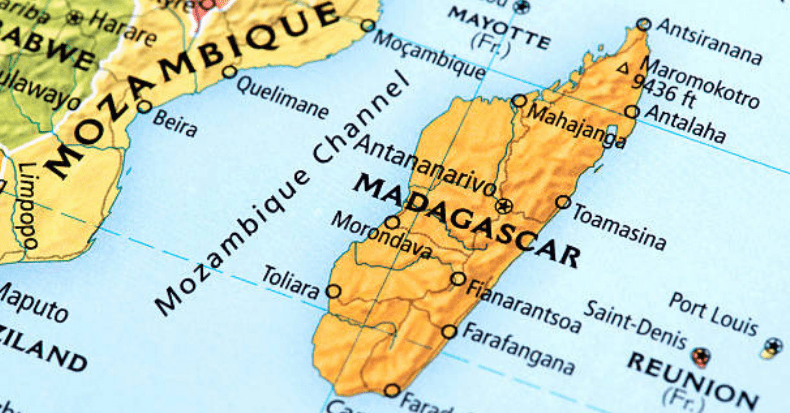8 customs and traditions only Malagasy people can understand
You probably know the movie Madagascar, but do you really know the island it is based on? Have you heard of the Vodiontry, or the Famadihana? Head to the Indian Ocean, we tell you all about Malagasy customs and traditions!
Madagascar is located in the Indian Ocean, 250 Miles off the east coast of mainland Africa. This island was discovered and named by the Italian explorer Marco Polo. However, it was French settlers who occupied the territory from 1897 to 1960. Beyond its colonial history, the
island has a particularly unique population and culture: Malagasy people are descendants of African related to the colonial history, but
most Malagasy are descendants of Asian people, who migrated from Borneo, Sumatra, Java and Indonesia.
Italian explorer Marco Polo. However, it was French settlers who occupied the territory from 1897 to 1960. Beyond its colonial history, the
island has a particularly unique population and culture: Malagasy people are descendants of African related to the colonial history, but
most Malagasy are descendants of Asian people, who migrated from Borneo, Sumatra, Java and Indonesia.
Today, these mixed communities blend their French past with Christian, Muslim and ancestral traditions. The result is an extremely rich
culture and sometimes surprising beliefs that dictate the daily life of the Malagasy.
Here are 8 customs and traditions only Malagasy people can understand!
1. Burying the umbilical cord of a new-born
When a woman gives birth, the midwife gives the umbilical cord and attached placenta to the father. Traditionally, it was his responsibility
to bury them under a flat stone at the entrance of the ancestral home. Nowadays in urban areas, it is buried in a place around the house in
an area unlikely to be polluted in any way. While burying this, the father makes sure never to turn his head. This burial symbolises the
perpetuation of the lineages and in Malagasy beliefs, a new-born whose umbilical cord is lost (“very tadi-poatra”) or not buried in
the way it should be, the baby will grow up to be a forgetful adult.
2. Taking up your spoon only after your elder
.jpg)
In Malagasy society, respecting one’s elders is a traditional custom that is still rigidly practised mainly in rural areas. Once a meal is served, no one is allowed to pick up their cutlery before the elder does. This person may be a father, a grandmother or a grandfather. Once they have lifted their spoon and started to eat, the rest of the family can start to eat as well.
3. Cutting a baby’s hair after three-months

Upon their third month in this world, a Malagasy baby will undergo what is called “ala-volo”, or the hair cutting ceremony. A person in the family with beautiful hair (a “tso-bolo”) is invited to cut the baby’s hair and put it on a large plate or bowl. The cut hair is then mixed with honey and tuberous roots such as sweet potatoes. At this point, the family members eat this mixture. This is a kind of rite of passage that allows the baby to fully integrate into society.
4. All houses should face west
.jpg)
When a Malagasy person builds a house, there are rituals and rules to be respected. One of these is about which direction one’s house faces. Malagasy belief states that the best sunshine is in the afternoon as the sun starts to set, so all houses should open up facing west. In the traditional building process, the east façade is closed off with no windows or doors. Windows are usually only located in the north, and doors in the west.
5. The head of the bed must face north
Inside the house, to allow positive energies to circulate throughout, everything has to be in the right place. The north is the place where “holiness” meets “power”. According to Malagasy belief, happiness and wealth come from the north. Parents’ bed should be laid there and positioned heading only to the north; the south is the place of anything related to production, and the west is the position of doors through which anything out of use is thrown away.
6. Engagement before marriage
Before any marriage ceremony the couple needs to get engaged “traditionally”. The first step is locally known as “vodiondry” or “lamb’s rump”, which is a Malagasy couple’s formal engagement. This consists of inviting the groom to introduce himself in front of the bride’s family and formally ask for her hand. He also has to present gifts to the bride’s parents and siblings.
7. Never have a funeral on a Thursday
Each day is favourable for a particular purpose according to the Malagasy belief. Thursday is the first day in the Malagasy calendar and so it’s the best day to start anything you would like to last, especially house building for example. In the same way, it is not recommended to have a funeral on a Thursday, since it may become the starting point of continuing deaths in the family. Generally speaking, Malagasy people never organise any burial on this day.
8. The Famadihana: the ceremony of turning over the dead
.jpg)
Malagasy are animists : although islam and christiany are mainly praticed in the country, Malagasy has made an understanding with its
ghosts. In popular Malagasy belief, the dead look out after the living, and the living look out for the dead.
The Malagasy have a very rich ancestor cult and funeral ritual: the Famadihana season takes place from June to September. It is a
big family gathering, the biggest one after a wedding and funeral ceremony. Members of the deceased’s family come together and organise the
big event where the deceased is exhumed and then re-wrapped. It’s a celebration of life and parenthood. during which the ancestors are
"turned over" to be dressed in a new shroud of natural silk.
Sources : https://www.wildjunket.com/interesting-facts-about-madagascar/
https://thefactfile.org/madagascar-facts/
Design by Monsieur Graphic
